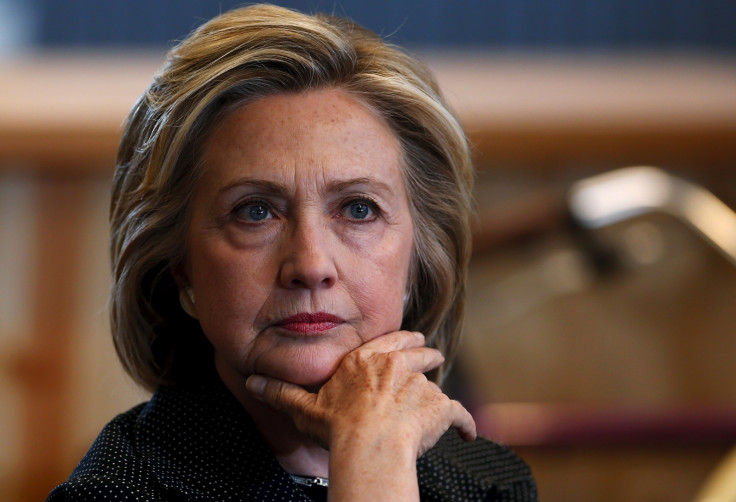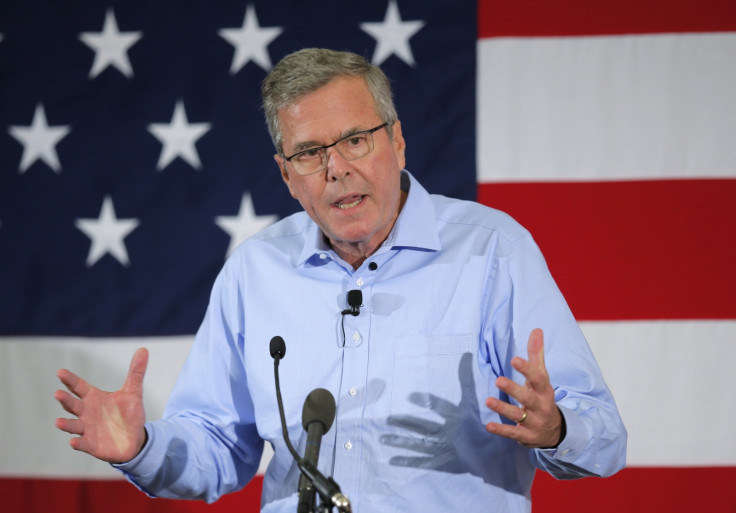Simon Heffer: Hillary Clinton and Jeb Bush celebrity cult risks dominating 2016 US election
It is still nearly 18 months until polling day in the 2016 US presidential election but already there has been a rash of declarations by potential Republican candidates.
So far, there is only one Democrat: Hillary Clinton, the former first lady, senator and secretary of state. Any potential challengers in her own party see her as impossible to beat when it comes to securing the nomination – the incumbent vice-president, Joe Biden, is not even on the radar, for example.

And there is a general belief in the party that when, rather than if, Clinton puts herself before the American people, they will do what is expected of them and elect her to the White House.
All that remains to be decided is how easy the Republicans will make it for her.
Several Republicans with gubernatorial or senatorial experience will be in the field. Some are formidable candidates but all, as is the way with American elections, have something about them that divides opinion even within their own party. That, of course, used to be Clinton's problem, which is why she failed to beat Barack Obama for the Democratic nomination in 2008.
Now, though, she is striving to give the impression of invincibility, an impression based on her stature, experience and sheer name recognition. The last factor counts enormously in America, which makes it all the more remarkable that Bart Simpson isn't in the frame for 2016.
A crowded field
Chris Christie, the Republican governor of New Jersey, has a stain on him for having used political chicanery to humiliate a political opponent. Marco Rubio, a Floridian senator, is deemed too young and all over the place ideologically. Scott Walker, the governor of Wisconsin, finds himself either condemned for his dullness or criticised for his economic management.
Mike Huckabee, a former governor of Arkansas and a failed presidential hopeful in 2008, has huge recognition as a television personality – a status that, sadly for him, brings with it an impression of triviality. Decidedly untrivial is Rand Paul, son of perennial presidential contender Ron Paul, whose hard-line conservative isolationist ideology makes him the hero of the more doctrinaire elements in his party but terrifying to large swathes of America.
Ted Cruz, the first Hispanic ever to be returned as a senator for Texas, makes up in charisma and conviction what he lacks in experience. It is a crowded field, and that is not the end of it.
None of these men carries with him the baggage of Jeb Bush. When, in 1999, his elder brother George W was preparing his presidential bid, numerous observers of the American political scene observed the family had put forward the wrong brother. That year, Jeb became governor of Florida instead, a job he held for eight years – for most of his brother's bizarre presidency.
By general consent he did a good job, certainly good enough other things being equal, to qualify him for a respectable run at the White House. However, other things were not equal.
Bush family name damaged
Having won the presidency in a deeply disputed election and only after weeks of recounting, George W then proceeded to damage the Bush family name by an awkward response to 9/11, the ham-fisted prosecution of what he termed the Global War on Terror, and a foreign policy that took America some way towards being an international pariah.
This seemed to leave Jeb with an awkward choice: either to disown his brother or to back policies that almost all Americans found toxic.
Earlier in May, Jeb showed how unsure-footed he can be, when fluffing a question on whether he thought the Iraq war was a good idea. He did, and he didn't. Then last Friday (22 May) he found himself at a conference of Southern Republicans, at which he said he was proud of his family.

This was not just about his brother George; it was about his Mexican wife, a huge asset in a country where Hispanics are an increasingly significant minority.
But Jeb now appears to be taking the view that his brother is his brother, no more nor less, and it is just one those things that he happens to have been a widely disrespected president. Jeb is Jeb.
Because American politics is like a giant, never-ending talent show, dynasties have an advantage as well as a disadvantage. Jeb Bush and Hillary Clinton both have extensive name recognition. They are familiar faces on television. Celebrity does not imply an ability to govern, but it does count for rather too much in elections, and not just in America.
As America prepares to make its big decision about its head of state in November 2016, it would do well to ask itself whether two families should, with the exception of an eight-year aberration called Obama, run the country between January 1989 and, possibly, January 2025.
There are over 320 million others to choose from. Isn't democracy a wonderful thing that, in 21<sup>st century America, the choice looks likely to be between two rival families, as if this were medieval England or Italy? And what price Chelsea Clinton for the 2024 presidential election?
Dr Simon Heffer is a British commentator and author who has written columns for The Daily Mail, The Daily Telegraph, The Spectator and The New Statesman. He is the biographer of Enoch Powell, Thomas Carlyle and Ralph Vaughan Williams and recently published High Minds: The Victorians And The Birth Of Modern Britain.
© Copyright IBTimes 2025. All rights reserved.






















